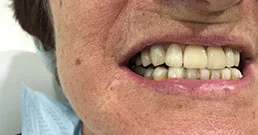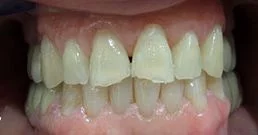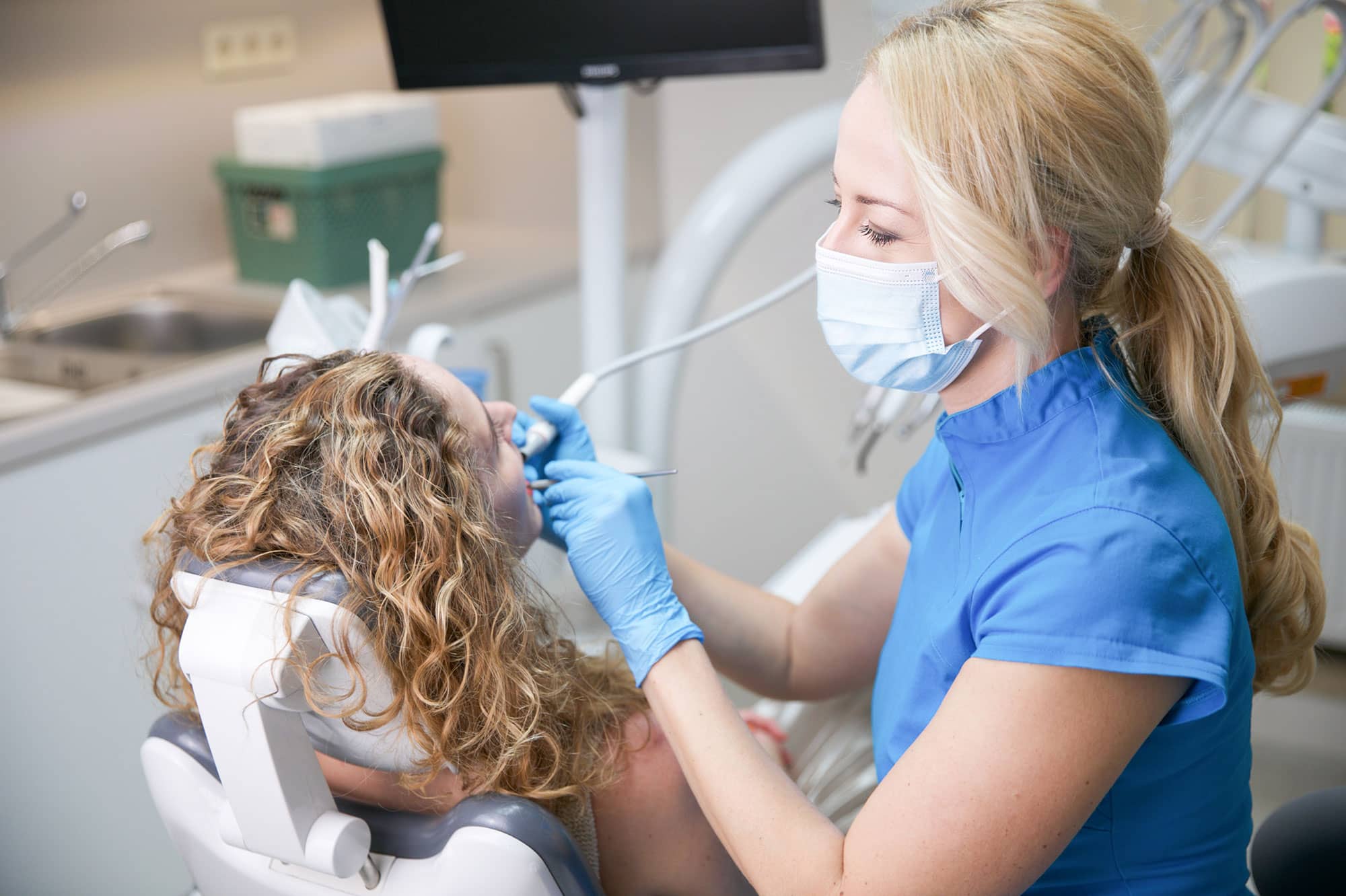Teeth grinding, or bruxism, is a bad habit that involves the clenching, grinding and gnashing of the teeth. While most people do grind their teeth occasionally, it can be very damaging if done frequently. In case teeth grinding becomes a habit, causing intensive pain and damage to the teeth, it is necessary to turn to a dentist.
In this post you will find the answers to the following questions:
- When do we grind our teeth?

- What is in the background of teeth grinding?
- What age group is most at risk?
- How can we know if we grind our teeth? What are the symptoms of teeth grinding?
- Why is teeth grinding damaging and what are the consequences?
- How can we avoid teeth grinding?
- What can we do if teeth grinding becomes serious?
- What to expect at the dentist’s office?
When do we grind our teeth?
Most people grind their teeth at night during their sleep, which means they are not even aware of what they are doing. However, some people practice this bad habit during the day, especially in stressful situations.
What is in the background of teeth grinding?
We release tension by grinding our teeth being awake when we find ourselves in a stressful situation or when we feel anger, but are unable to express it. Aggressive or hyperactive behaviour can also involve teeth grinding. Improper bite or crooked teeth might be the cause of the problem, too, just like sleep disorders, antidepressants, alcohol, smoking, drugs and certain medicines.
The reasons for bruxism can be categorised into three groups:
Stress
The main reason for bruxism occurred at night is that we recall the stressful daily events while dreaming.
Uneven teeth line
During the night our teeth would like to reach a calm state although it is not always possible. Among the reasons, there are the inadequate position of the teeth and jaw, a too high filling, a bridge, a crown etc. or a growing wisdom tooth that pushes your whole teeth to the front.
Other reasons
These are, for example, the side effects of different medicines such as antidepressants, alcohol, cigarette or drugs.
What age group is most at risk?
 One in three people suffer from teeth grinding. Adults and children are equally affected, but the problem is most common among adults between the age of 25 and 44 years. This might be due to the lifestyle factors that you can read about in the previous paragraph.
One in three people suffer from teeth grinding. Adults and children are equally affected, but the problem is most common among adults between the age of 25 and 44 years. This might be due to the lifestyle factors that you can read about in the previous paragraph.
As most of us grind our teeth at night, we are not aware of this bad habit. However, there are some warning symptoms. These can include the sensitivity of the jaw, headache, earache, sensitive teeth or teeth marks in the tongue. You should also take it seriously if your partner complains that they can’t sleep at night because of the noise of you grinding teeth.
Why is teeth grinding damaging and what are the consequences?
Sustained pressure on the teeth, as well as clenching and permanent grinding, affects a number of structures: the temporomandibular joint, the gums, the masseter muscles and even some vertebrae. As a consequence of the constant stress, the occlusal surface and the teeth lose their contour and get ground down.
Bruxism without treatment can cause several well-known or less-known harmful effects. Let’s check them in details.
Direct damages on the teeth.
Bruxism can injure our jaw so that our teeth sink and even the structure of our face changes. If we grind our teeth over a longer period of time, they might break, become loose or they can even fall out. These damaging processes might continue until only the roots of the teeth remain. However, this occurs very rarely, only in extreme cases. It is a real risk though that the angle and position of the teeth changes, consequently some teeth may even get loose. In the middle of the temporomandibular joint there is movable cartilage.
Possible consequences of bruxism
This layer of cartilage gets quickly worn out due to the faulty functioning. As a consequence, the joint makes a rattling, popping, crackling or friction noise. Also, its movement is limited and it can hurt. The jaw can get dislocated as well, which means that the patient can neither open nor close their mouth.
Teeth grinding affects not only the temporomandibular joints but also the surrounding areas. The masseters (the muscles for mastication) get first tense, then hard. The next affected body parts are the muscles of the neck and throat.
Headache and chronic tinnitus can also be a consequence of teeth grinding.
Social Problems
This illness also affects the calmness and comfort of your sleeping partner. It is especially true when the affected person is a light sleeper or when he/she cannot tolerate this unpleasant voice.
How can we avoid teeth grinding?

We can choose from several solutions if we want to avoid teeth grinding. First of all, we must get rid of the stress as it is the root of the problem. There are various methods and exercises to release stress and relax our muscles. For instance, we can try the cognitive behavioural therapy. We should try to learn how to rest, relax or meditate. We should consume less caffeine, chocolate and alcohol and drink more water. It’s a useful technique to place the tip of the tongue between our teeth, but we can also try a mouthguard.
What can we do if teeth grinding becomes serious?
If you experience intensive pain and permanent problems, you should contact a dentist.
What to expect at the dentist’s office?
You can expect a few examinations, after which you get the diagnosis and you and your dentist can decide the type of treatment. Your dentist can recommend relaxation or other therapies. He can also suggest that you get crowns, bridges, a mouthguard or prostheses.
Your dentist recommends the preparation of occlusal splints. While taking a dental impression a personalised splint is prepared that relaxes your jaw muscles as well as protects your teeth from forceful grinding.
Summary
Teeth grinding is a harmful habit for releasing tension. Most people grind their teeth at night, so they are not aware of what they are doing. However, there are several symptoms that can turn our attention to the problem: headache, earache, jaw problems or our partner’s complaints that we don’t let them sleep at night. We can choose from various methods if we want to get rid of the problem and the symptoms. The most important task is to treat the root of the problem, that is to decrease stress and tension, and change our lifestyle. If more serious problems occur, we should contact our dentist who can prescribe the appropriate treatment after an examination.


